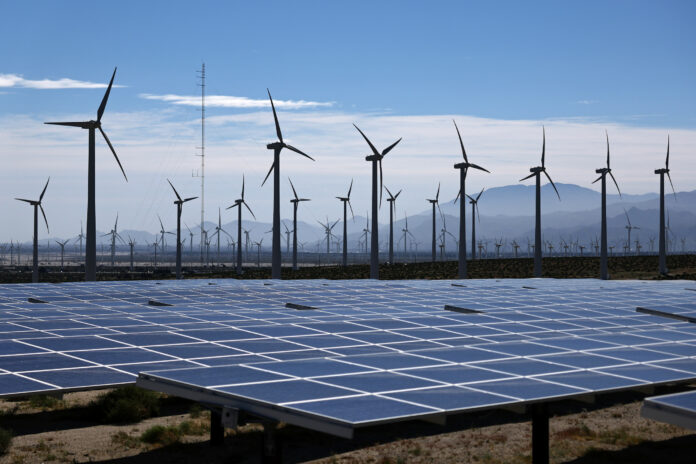The Securities and Exchange Commission’s recent vote to establish new climate disclosure rules is facing predictable criticism from two opposing sides. To certain industry groups, the rules requiring corporations to track and report additional data showing their effects on the environment is governmental overreach in business. To some environmental groups, the rules don’t go far enough, since they leave out emissions in companies’ supply chains, known as Scope 3.
But here’s something everyone should be able to agree on: These new rules can expand the economy. They’re already breathing life into the crucial, growing sector of climate tech.
All over the world, investment in ways to combat climate change is increasing. Nowhere is this clearer than in climate tech. The global market is expected to expand nine times over in the next decade, from $20 billion last year to a massive $182.5 billion by 2033.
How much of this growth will happen in the United States? That depends on decisions made today. And the SEC rules are offering a boon to U.S. climate tech.
Well-designed climate tech solutions can go a very long way in directly reducing emissions from any industry, helping to combat climate change. They also quantify and report the improvements they offer—including reduction in carbon emissions. Climate-focused startups are using the latest technologies to track these kinds of metrics in real time.
Corporate behemoths don’t have to start from scratch in finding ways to provide the kind of additional information that the SEC is demanding of publicly traded companies. They can work with small businesses that offer ways to automate this. And in the process, they can satisfy not only the SEC, but also climate-focused investors who have themselves been demanding greater transparency and accountability from businesses on Wall Street.
In the few weeks since the SEC vote along partisan lines, I’ve already seen positive changes. Among founders and aspiring entrepreneurs in the climate tech sector, this is a galvanizing moment. Last year, the number of climate tech startups in the United States that were acquired or went public fell to a three-year low, according to PitchBook. Now, as companies look for ways to meet these new SEC rules, they’re expected to turn to climate tech solutions, boosting the sector—and breathing new life into this part of the U.S. economy before climate tech communities in other countries beat us out.
Having co-founded Greentown Labs, the largest climate tech incubator in North America, I’ve long seen that entrepreneurs in this space are some of the hardest working, most environmentally committed business leaders of our time. I’ve also seen that it takes cooperation with big, established players to achieve maximum results, both for business and the environment.
Mario Tama/Getty Images
In the small business where I currently serve as CEO, I see how ripe big publicly traded companies are for these kinds of partnerships. We focus on the biopharma sector, providing safe, local recycling of plastic that has previously been trashed, incinerated, or shipped across the country for recycling. (This has been an especially big problem in biopharma and other industries since China stopped taking America’s plastic waste in 2018.)
Biopharma is the perfect example of a major industry on the stock market that contributes disproportionately to carbon emissions and will be impacted by the SEC ruling. It’s also the perfect example of an industry ripe for technological solutions that can help to solve both of those challenges. My small company alone is helping some “Big Pharma” corporations reduce waste and capture metrics instantly in numerous ways, including through the use of a tool from the Department of Energy known as WARM (Waste Reduction Model).
Other small businesses are doing everything from composting cafeteria waste to putting solar panels on roofs—and instantly capturing metrics along the way that will help companies provide the information the new SEC rules demand.
The more climate tech startups grow, the more people they employ. The Biden administration’s American Climate Corps is set to train 20,000 young workers to join businesses like ours. Meta’s chief technology officer left the company to help build early-stage climate tech startups. The potential for businesses in this sector is endless.
While people on opposing sides of the ideological spectrum may battle over the new SEC rules, millions of people like me—and other “climate tech warriors” across the country—are getting to work. We’re embracing this as an opportunity to advance both the climate and the economy. And we see a bright future.
Sam White is co-founder of Greentown Labs and CEO of GreenLabs Recycling.
The views expressed in this article are the writer’s own.
Uncommon Knowledge
Newsweek is committed to challenging conventional wisdom and finding connections in the search for common ground.
Newsweek is committed to challenging conventional wisdom and finding connections in the search for common ground.


